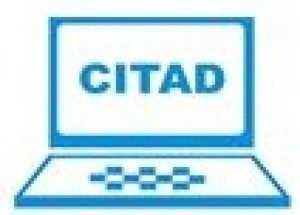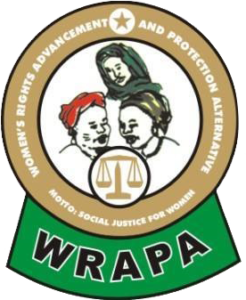The internet intrigues everyone. So much so that, in 2014, two Western think tanks, Chatham House in London and the Ontario, Canada based Centre for International Governance Innovation, (CIGI) set up the Global Commission on Internet Governance. The task was to explore how to preserve a single worldwide web, (romantically renamed worldwide wonderland). The two went on to put Prof Joseph Nye to the task. You can call people such as Professor Nye, John Ikenberry, Robert Keohane and all other members of that club conservative scholars but they are some of the most established political scientists in the Western world and most influential on a global scale. Obviously finding the concept of Hegemony too radical or smelling of Socialism, for example, Prof Nye, a special student of power, has basically created the concept of ‘soft power’ to replace it. Today, even the radicals are using soft power without much suspicion. It has become naturalised as a term by which we think of power as built up consent rather than coercion. But ‘soft power’ is not less ‘dangerous’ than Hegemony. It says much about how scholars in that circle set the standards.
However, when Nye went to work, he came out with a neither here nor there kind of position as far as the hard headed realist he has been. Instead of an analysis corresponding to that theoretical standpoint, Nye’s report was speaking in theoretical tongues, relying on scholarly dexterity to argue what he called a ‘Regime Complex’ – “loosely coupled norms and institutions that ranks somewhere between integrated institutions that imposes regulation through hierarchical rule and highly fragmented practices and institutions with no identifiable core and non- existent linkagesâ€. It was a classic evidence of the incomprehensibility of the phenomenon called the internet to even some of the most regarded contemporary thinkers.
The world has found challenging the multiplicity of tasks the internet alone can accomplish, the technological complexity, the horde of actors it invites and accommodates, the security debacle it has invented, the ideological quarrels it has brought about, the problem of dealing with the United States, until recently, the elephant in the internet governance room, the digital divide corresponding to the North-South dichotomy, the gender question in internet access and the internet’s share of the ‘tragedy of the commons’.
It was against this background that the recent invitation to a ‘Civil Society Consultative Forum on Internet Code of Practice for Nigeria’ was received with excitement as well as apprehension in many quarters across Nigeria. Excitement because it gave a critical stakeholder such as the civil society opportunity to generate and make the sort of input that expands its own space in a process involving the consolidation of the internet. Two, it is an entirely Nigerian government initiative through its telecommunications regulator – the Nigerian Communications Commission (NCC). The apprehension was/is how the civil society of even the giant of Africa might penetrate the ocean called the internet in terms of something for everyone. This is in the light of the great power politics around the internet, especially the threat of balkanization and the frightening argument that such states have a fall back in the principle of substitutability, coercion and delegation by which they can always have their way.
 June 8th, 2017 came and it was a full house full of surprises. The first surprise came from the way the Centre for Information Technology and Development, (CITAD) coordinating the input making process managed to assemble people versatile in the issues involved. The second surprise was how nearly everyone was keen to push a position, clarify something or offer an alternative, from the beginning to the end of the meeting. The third surprise is how far gender consciousness has gone in the discourses of internet governance in Nigeria. If that measures the level of gender consciousness across other social arena in Nigeria, then the gender revolution would take place before we know it. The last shocker is how an audience of predominantly Abuja based potential middle class elements could be so insistent on extension of internet facilities to the rural areas.
June 8th, 2017 came and it was a full house full of surprises. The first surprise came from the way the Centre for Information Technology and Development, (CITAD) coordinating the input making process managed to assemble people versatile in the issues involved. The second surprise was how nearly everyone was keen to push a position, clarify something or offer an alternative, from the beginning to the end of the meeting. The third surprise is how far gender consciousness has gone in the discourses of internet governance in Nigeria. If that measures the level of gender consciousness across other social arena in Nigeria, then the gender revolution would take place before we know it. The last shocker is how an audience of predominantly Abuja based potential middle class elements could be so insistent on extension of internet facilities to the rural areas.
Called by Alhaji Yakubu Aliyu, the Abuja based Development Policy expert who chaired the occasion to make an opening remark, Mallam Yunusa Y’au, the Executive Director of CITAD, located the essence of the day in NCC’s call for inputs for an internet code of practice for the country. So, the consultative forum differs slightly from the typical civil society engagement. Unlike the governance issues the civil society is more used to, this is about procedures and guidelines on how people could access and use the net.
It may look innocuous but caution is required, he said, pointing out how the internet has become a guarantor of other rights such as right to Freedom of Information, right to education and so on. It is for this reason that there is a gradual move to make internet access a right but the move is constrained by issues of access, affordability, infrastructure, appropriateness of platform and the case of special audiences such as the disabled. The civil society might, therefore, want to think about which guidelines and procedures would guarantee inclusivity, respond to gender violence online and the tendency of national governments to isolate negative impacts of the internet and seek to assert control, among others.

Prof Dada at a previous outing
Professor John Dada was the first of the three resource persons whose intervention were to provide the background to the input process. He turned out a fascinating presenter with great deal of raw data. Surprisingly, he is not based in any jet set urban centre but Kafanchan. He is of the APC but not the party in power in Nigeria. His is the Association of Progressive Communications, (APC) that works through research, advocacy, networking, communication and outreach.
There is a sense in which three of the greatest points he made might be the following. Regulation is running behind the internet itself. Always several steps behind the internet dynamics because of lack of internet governance training rather than wickedness, governments are found reacting out of panic or in ignorance. In his analysis, they need internet governance training. The way he presented it is such that most senators and members of the House of Representatives would flock to internet governance schools because it would help make them resolve their crisis of relevance in their communities by being able to do much more at very little or no cost at all.
Second is his point about the relative lack of awareness of the potentials of the internet in Nigeria, especially when compared to Latin American countries. The third is the emancipatory dimension of his politics of the internet: making it available for everyone is not a big deal.
One question put to Prof Dada and which remained dominant throughout the rest of the day was: who pays for the cost of taking internet to the rural areas. He’s got an answer: it is not a big deal either. One, there is a service provision fund to cushion transnational corporations going to such places considered to be uneconomical in profit terms either because they are sparsely populated or hard to reach. Right now, Nigeria has billions untouched in the said fund. Somebody made a cynical remark that the money must still be there only because Nigeria’s Finance Minister is unaware or it would have been withdrawn and used for something else. It gave an insight to how little is the faith in government in Nigeria.
Dada’s second means for taking internet to the rural areas is the community network. All the government has to do is provide the backbone because the community provides the content and the infrastructure. Dada would add that whatever is considered as problems in taking the internet to the rural areas have been confronted and resolved one way or the other elsewhere such as in India, Argentina, Peru among others.
The rural areas are where the internet must go, he says. His reason is that these are where the real Nigerians are based, with rich oral and visual culture which the internet is the best place to spread them. There is now solar operated computer, making lack of electricity nearly a non-issue. A Yoruba keyboard is already developed and is on the way for other cultural groups. With that, illiteracy as a constraint on taking internet to the rural areas is off. This, he said, is why illiterates in Japan or China didn’t have to become literate before they could get into the world of the internet. What is missing, as far as he is concerned, is a powerful enough advocacy for rural internet provisioning. Once that comes on board, the awareness would be created and the idea would catch on.
 What about a sort of a Nigerian thinking on the security debacle that comes along with the very nature of the internet – it can secure just as it can be a conveyor belt for insecurity. Yet, civil society is sensitive to government trying to control it even as we want to be safe from terrorists, cyber criminals and dirty dealers. Two responses greeted this question. First was the argument that government almost always over steps itself in trying to use security as an excuse. The example of the huge amount of money spent on surveillance equipment which was not even installed is cited. This propensity typical of government is something civil society is asked to watch out for, being the ears and eyes of the people. The second answer is the futility of government’s attempt to block or control content. They never make a success of it, it was pointed out. An example was given of the experience of three Nigerians who arrived an East African country where the government had shut down internet access – no face booking, no tweeting, no whataspping.
What about a sort of a Nigerian thinking on the security debacle that comes along with the very nature of the internet – it can secure just as it can be a conveyor belt for insecurity. Yet, civil society is sensitive to government trying to control it even as we want to be safe from terrorists, cyber criminals and dirty dealers. Two responses greeted this question. First was the argument that government almost always over steps itself in trying to use security as an excuse. The example of the huge amount of money spent on surveillance equipment which was not even installed is cited. This propensity typical of government is something civil society is asked to watch out for, being the ears and eyes of the people. The second answer is the futility of government’s attempt to block or control content. They never make a success of it, it was pointed out. An example was given of the experience of three Nigerians who arrived an East African country where the government had shut down internet access – no face booking, no tweeting, no whataspping.
Unable to bear being cut off from the world, unable to inform families and friends about their safe arrival, the three Nigerians found themselves protesting to the hotel. The outcome was being taken to a hidden corner of the hotel where they found everyone using internet facilities through an alternative mechanism. The logic of the story was to show the difficulty of sustained blocking of access to the internet because people would always get round it. In any case, whatever you do on the internet is there and security can always trace it to you. Civil society does not frown at government doing security but frowns at using people’s indiscretion to blackmail people which is abuse of the intelligence profession. In other words, what is intelligence if government goes to tell your wife what you told your girlfriend? The hall did not explode in laughter but witnessed the kind of chuckling that signposts approval of the argument, especially when the speaker added the point about how many students first encounter the computer on the day they sit for the Computer Based Test in Nigeria even though the National Education Curriculum says Computer Studies is compulsory.


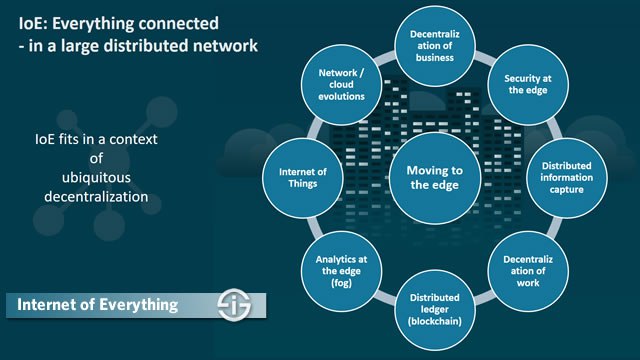
 June 8th, 2017 came and it was a full house full of surprises. The first surprise came from the way the Centre for Information Technology and Development, (CITAD) coordinating the input making process managed to assemble people versatile in the issues involved. The second surprise was how nearly everyone was keen to push a position, clarify something or offer an alternative, from the beginning to the end of the meeting. The third surprise is how far gender consciousness has gone in the discourses of internet governance in Nigeria. If that measures the level of gender consciousness across other social arena in Nigeria, then the gender revolution would take place before we know it. The last shocker is how an audience of predominantly Abuja based potential middle class elements could be so insistent on extension of internet facilities to the rural areas.
June 8th, 2017 came and it was a full house full of surprises. The first surprise came from the way the Centre for Information Technology and Development, (CITAD) coordinating the input making process managed to assemble people versatile in the issues involved. The second surprise was how nearly everyone was keen to push a position, clarify something or offer an alternative, from the beginning to the end of the meeting. The third surprise is how far gender consciousness has gone in the discourses of internet governance in Nigeria. If that measures the level of gender consciousness across other social arena in Nigeria, then the gender revolution would take place before we know it. The last shocker is how an audience of predominantly Abuja based potential middle class elements could be so insistent on extension of internet facilities to the rural areas.
 What about a sort of a Nigerian thinking on the security debacle that comes along with the very nature of the internet – it can secure just as it can be a conveyor belt for insecurity. Yet, civil society is sensitive to government trying to control it even as we want to be safe from terrorists, cyber criminals and dirty dealers. Two responses greeted this question. First was the argument that government almost always over steps itself in trying to use security as an excuse. The example of the huge amount of money spent on surveillance equipment which was not even installed is cited. This propensity typical of government is something civil society is asked to watch out for, being the ears and eyes of the people. The second answer is the futility of government’s attempt to block or control content. They never make a success of it, it was pointed out. An example was given of the experience of three Nigerians who arrived an East African country where the government had shut down internet access – no face booking, no tweeting, no whataspping.
What about a sort of a Nigerian thinking on the security debacle that comes along with the very nature of the internet – it can secure just as it can be a conveyor belt for insecurity. Yet, civil society is sensitive to government trying to control it even as we want to be safe from terrorists, cyber criminals and dirty dealers. Two responses greeted this question. First was the argument that government almost always over steps itself in trying to use security as an excuse. The example of the huge amount of money spent on surveillance equipment which was not even installed is cited. This propensity typical of government is something civil society is asked to watch out for, being the ears and eyes of the people. The second answer is the futility of government’s attempt to block or control content. They never make a success of it, it was pointed out. An example was given of the experience of three Nigerians who arrived an East African country where the government had shut down internet access – no face booking, no tweeting, no whataspping.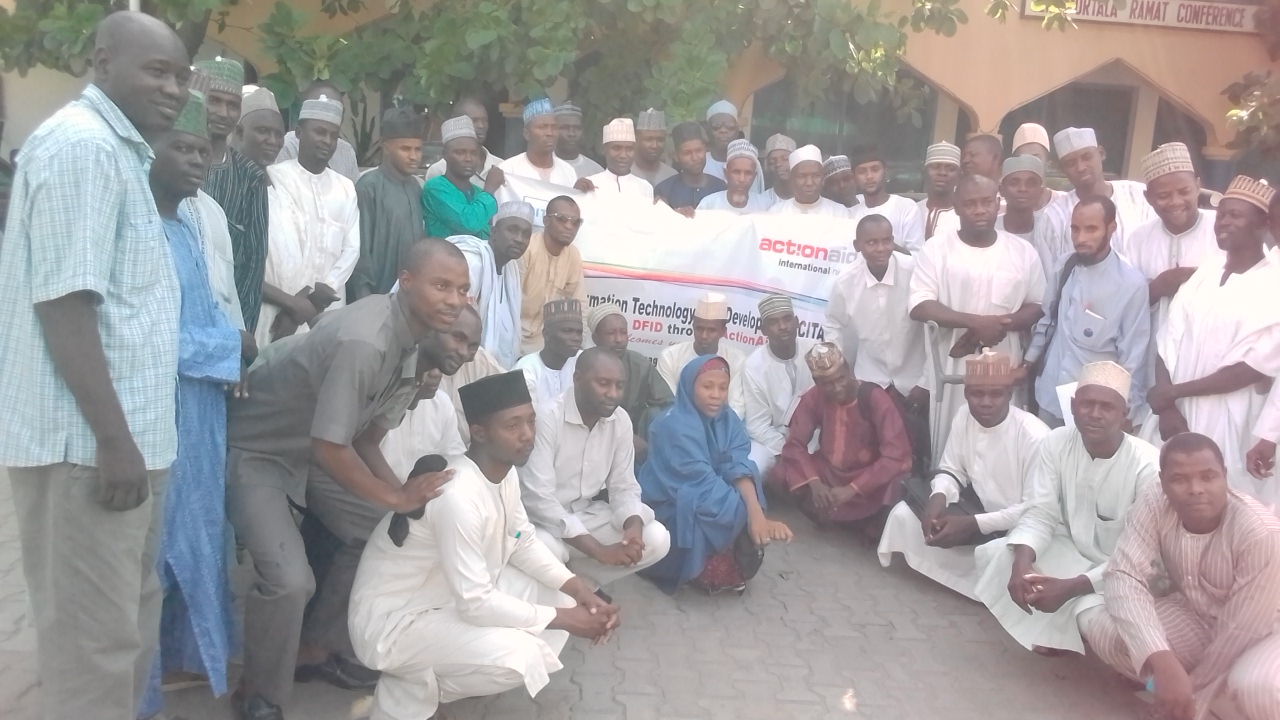
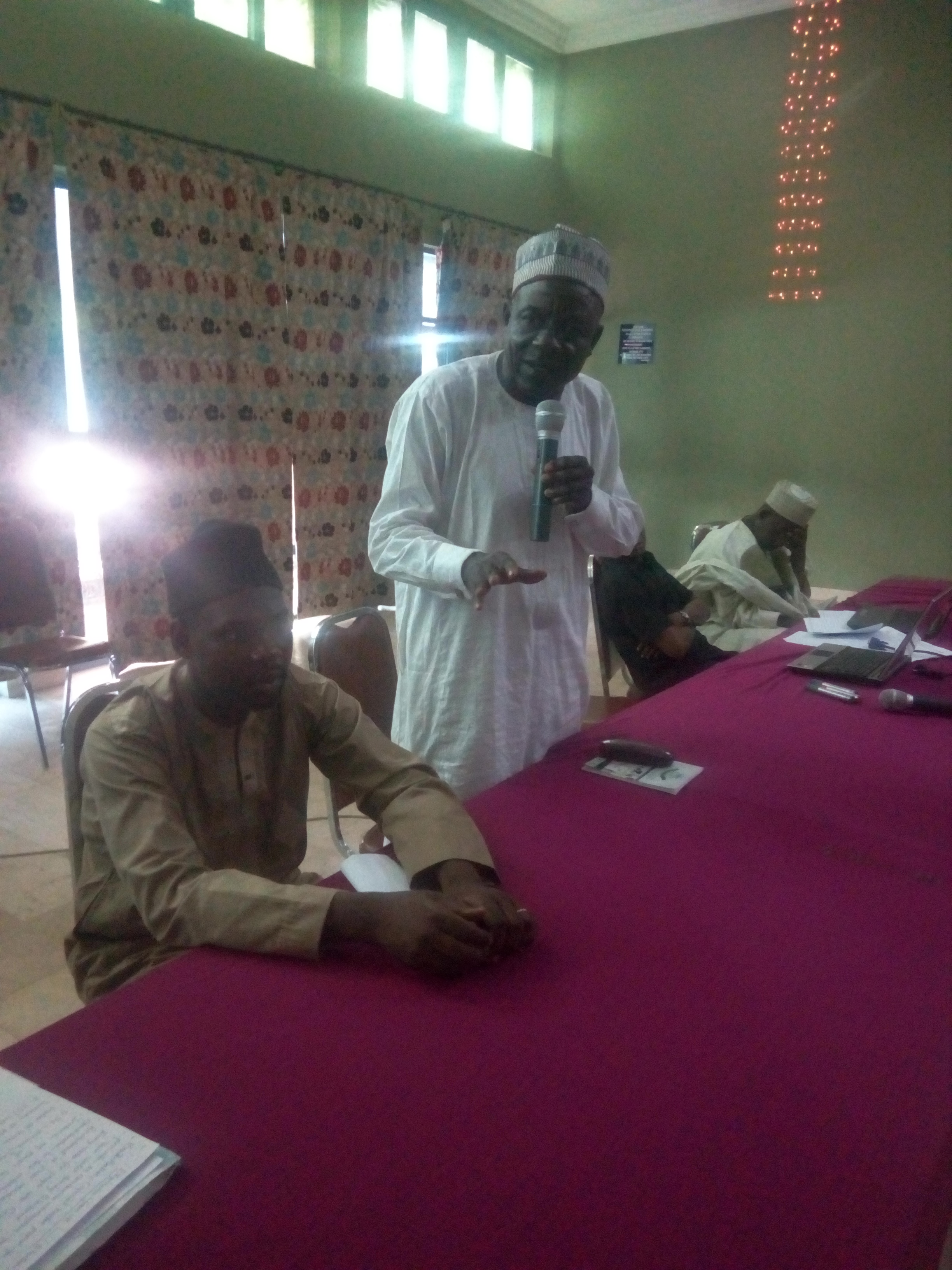



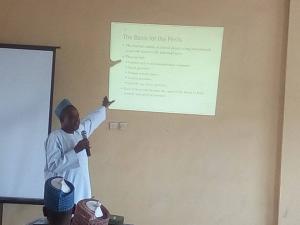





 The first problem with this representation of the dynamics of resilience to Boko Haram is the applicability of the idea of communities that have moved on or out of entrapment in the assemblage of trauma that Boko Haram has occasioned in the north east region and Nigeria. Many would challenge such a claim with the subsisting degree of human vegetation in IDP camps, the threat of famine, the human waste in weekly bomb blasts in and around Maiduguri, the nightmare of the atrocious practice of strapping young girls with bombs which someone somewhere would be detonating on cue, among others. And this is in spite of the military’s involvement.
The first problem with this representation of the dynamics of resilience to Boko Haram is the applicability of the idea of communities that have moved on or out of entrapment in the assemblage of trauma that Boko Haram has occasioned in the north east region and Nigeria. Many would challenge such a claim with the subsisting degree of human vegetation in IDP camps, the threat of famine, the human waste in weekly bomb blasts in and around Maiduguri, the nightmare of the atrocious practice of strapping young girls with bombs which someone somewhere would be detonating on cue, among others. And this is in spite of the military’s involvement.

 CITAD and the United States Institute of Peace which has supported the research on resilience to Boko Haram have simply accepted and even implemented Ayoob’s position, by bringing together young researchers who have also brought their research findings to the table under the gaze of some of Nigeria’s most established social scientists. So, it could be argued that everything needed for this study to make a statement on resilience from this part of the world are on the ground except Jibo’s unit of measurement, otherwise known as Jibogram.
CITAD and the United States Institute of Peace which has supported the research on resilience to Boko Haram have simply accepted and even implemented Ayoob’s position, by bringing together young researchers who have also brought their research findings to the table under the gaze of some of Nigeria’s most established social scientists. So, it could be argued that everything needed for this study to make a statement on resilience from this part of the world are on the ground except Jibo’s unit of measurement, otherwise known as Jibogram.


 Two other worries that got contrary analyses were why some people still believe no girls were abducted from Chibok and why is the abduction mediatised more than that of hundreds of other victims in Boko Haram series of atrocities. The second is what sense does society make from the statement of those who said that Boko Haram were freedom fighters or the tendering of apologies to Boko Haram by some three governors sometimes in the past.
Two other worries that got contrary analyses were why some people still believe no girls were abducted from Chibok and why is the abduction mediatised more than that of hundreds of other victims in Boko Haram series of atrocities. The second is what sense does society make from the statement of those who said that Boko Haram were freedom fighters or the tendering of apologies to Boko Haram by some three governors sometimes in the past.


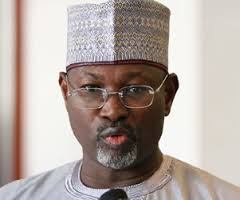
 It is a data rich report whose ranges can hardly be captured well very quickly. It had been two days of intense checking and cross-checking of data against conceptual and methodological claims, the end result of which could be a groundbreaking study of resilience in the African setting. In other words, the study of resilience strictly in terms of the subjective propensities of the people in the communities studied, resilience that has been completely outside of the influence of big business or market terms.
It is a data rich report whose ranges can hardly be captured well very quickly. It had been two days of intense checking and cross-checking of data against conceptual and methodological claims, the end result of which could be a groundbreaking study of resilience in the African setting. In other words, the study of resilience strictly in terms of the subjective propensities of the people in the communities studied, resilience that has been completely outside of the influence of big business or market terms.





